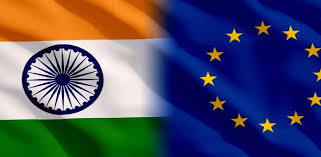In India, National Statistics Day is observed on 29 June to mark the birthday of Prof. Prasanta Chandra Mahalanobis, the father of Indian statistics. The occasion also highlights the role of statistics in policy formulation, planning, and development, thus creating awareness of how statistics shape a data-oriented society.
National Statistics Day is celebrated in India on June 29 every year to commemorate the birth anniversary of Prof. Prasanta Chandra Mahalanobis, one of the greatest Indian statisticians and the father of modern statistical systems in India. It pays homage to his significant achievement in the field of statistics and other related areas like economic planning and policy formulation, including the famous Mahalanobis distance and India’s Five-Year Plans. The day was first observed in 2007, to educate the public on the role of statistics in social and economic planning and the process of policy decision-making, and to underscore the importance of data collection, analysis, and interpretation in good governance. The Ministry of Statistics and Programme Implementation (MoSPI) conducts seminars, workshops, and competitions nationwide to promote statistical literacy. Each year, with a theme in tow, celebrations direct attention to pertinent issues that are data-driven and relevant to national development concerns. National Statistics Day is a day for promoting decision-making on evidence.
Significance of the Day
- June 29 is observed as National Statistics Day across India. This day honors the greatest modern statistician of India, Prof. Prasanta Chandra Mahalanobis.
- The objective, being his creation, is to increase public awareness about the importance of statistics in nation-building and policy formulation.
- Statistics find major fields of application in health, education, agriculture, environment, and economic planning.
- By providing accurate data, they assist policymakers in decision-making, monitoring and evaluation, and effective implementation of development programs.
- Celebrating this day signifies how decisions based on statistical evidence result in better transparent governance.
- Established in 2007 by the Government of India, it is celebrated through seminars, workshops, and discussions by MoSPI and other institutions.
- Themes are selected each year to highlight various aspects of development goals and their application in statistics.
- This day also inspires students and young professionals to take up statistics and data science as their professional careers.
- By commemorating Prof. Mahalanobis’s legacy, the day reinforces the value of statistics as a powerful tool for achieving inclusive growth and sustainable development in India.
Role of Statistics in Governance
- Statistics play an epistemological role in governance and patronize policy options, planning, and decision-making.
- National Statistics Day emphasizes the importance that accurate and timely data have for public administration in India.
- Statistical input enables government programs to be carried out with transparency, resources to be allocated efficiently, and socio-economic policies to be made with impact.
- From monitoring population growth and unemployment rates to assessing various health, education, and agricultural interventions, statistics permit evidence-based management.
- Census, National Sample Survey, and GDP estimation are tools to monitor development and redress inequalities.
- Such kind of governance holds those in power accountable and allows for recalibration of public interventions.
- By celebrating the day, the importance of statistical systems with respect to enacting inclusive growth through the central and state governments is highlighted.
- The day honors the memory of P.C. Mahalanobis by encouraging the strengthening of the statistical institution and continuing to infuse data science into national development strategy.
On a community level, statistics is vital in social planning and development. Surveys and census data inform decisions about where to build schools, hospitals, roads, and housing. They help identify underserved areas, track poverty levels, and monitor the effectiveness of social welfare schemes. Without statistics, addressing inequality and promoting inclusive growth would be blind efforts.
National Statistics Day, therefore, is not merely a ceremonial occasion. It is a call to recognize the fundamental role that data plays in improving governance, empowering individuals, and enhancing transparency. It underscores the importance of statistical literacy among the general public, encouraging people to not only trust data-driven decisions but also question and interpret them responsibly. In a world flooded with information, the ability to understand and critically assess data is crucial for combating misinformation and making choices that are both rational and ethical.
By commemorating National Statistics Day, we also reaffirm the need for accuracy, integrity, and objectivity in the collection and dissemination of data. This is particularly important in times of crisis, such as natural disasters or public health emergencies, where timely and reliable statistics can save lives.
In essence, the significance of National Statistics Day lies in its reminder that statistics is not a subject confined to textbooks or laboratories; it is a dynamic, indispensable part of how society functions, how decisions are made, and how progress is measured. Whether it is tracking personal fitness data, following political polls, planning family budgets, or engaging in civic debates, the influence of statistics is profound and omnipresent. Recognizing this helps foster a culture that values evidence-based thinking and informed citizenship.
The writer is currently working as an Assistant Professor at the University Institute of Science, Chandigarh University. rizwanwar50@gmail.com







